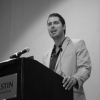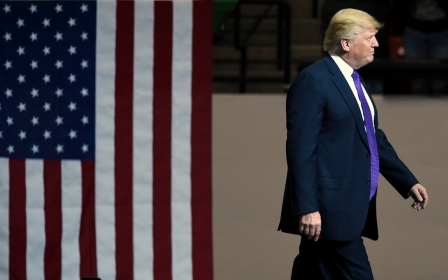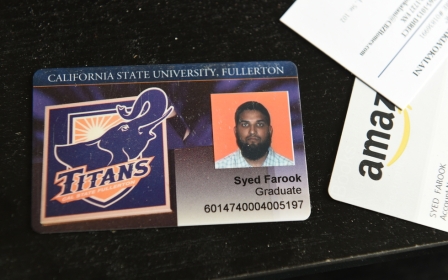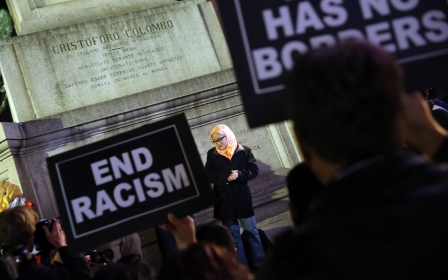The ordinariness of Trump supporters is what makes them so scary
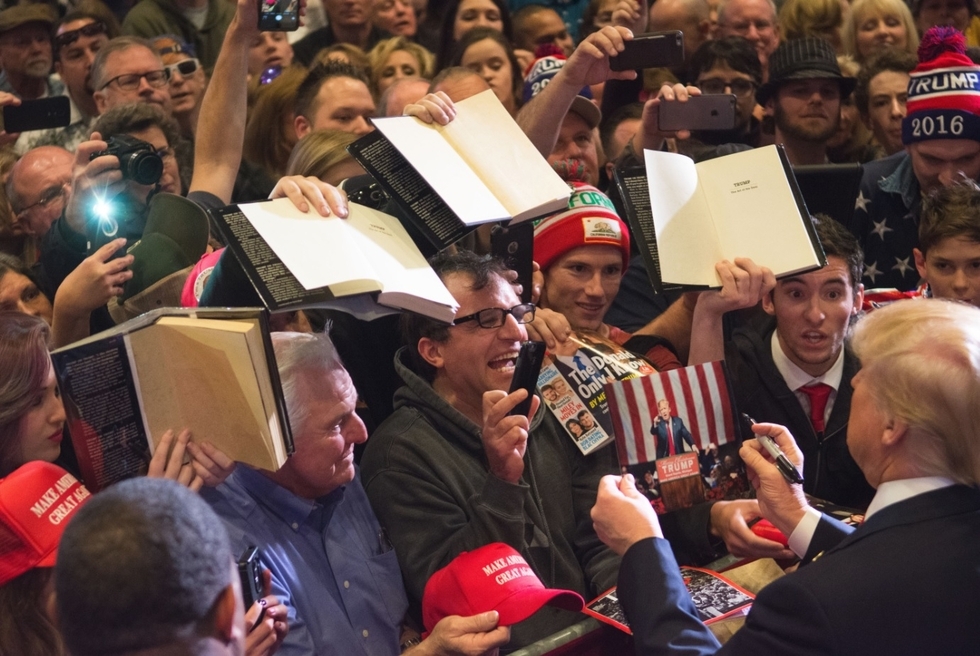
You’ve heard US presidential candidate Donald Trump promise to “bomb the shit” out of Islamic State-controlled territory; you’ve also heard him call for a ban on Muslims entering the United States; and you’re similarly aware Trump popularised Birtherism – a movement to delegitimise Barack Obama’s presidency by suggesting he’s either a foreigner, Muslim, or something else.
I’m sure you know far more than you care to know about Trump. But who are the Trumpistas, Trumpites, and Trumpets? Who are the people following the tune of a piper who has piped arguably the most overtly xenophobic and racist presidential campaign in more than a half-century?
On Tuesday I attended Trump’s Nevada Caucus victory speech at Treasure Island Casino, and partied late into the night with some of his most enthusiastic supporters, and thus now I have an answer to the aforementioned question.
I half-expected the crowd to resemble a covert KKK rally, but the Trumponistas failed to meet my preconceived notions – at least in terms of appearance. Not only was there an absence of easily identifiable white supremacists, neo-Nazis, or Klansmen among the 1,600 in attendance, but I also didn’t spot a single neck-tattoo.
The crowd was made extraordinary by its ordinariness. The crowd resembled every white-majority suburban street in America. I spoke to insurance agents, lawyers, realtors, retirees, students, brokers, hospitality workers, frat boys, and even a 97-year-old Second World War veteran of the Solomons and New Guinea. With all proper respect given to the latter, the casino’s ballroom portrayed white socio-economic populism sealed in a bottle.
That the audience more resembled a cocktail party for corporate middle managers than an initiation ceremony for Hells Angels bikers is what should scare us the most.
If support for Trump’s racist and xenophobic appeals came mostly from easily identifiable racists and xenophobes, then it would be easy to marginalise and dismiss Trump supporters.
That his support cuts across all layers of ordinary America is what makes the rising likelihood of a Trump presidency both a real and horrifying prospect – and especially so for Muslim Americans.
His populist appeal is carried on the back of blaming America’s ills on the weakest among us. It’s an age-old slight-of-hand that many now elderly Chinese, German, Japanese and Vietnamese Americans know only too well. If Trump gets his way, Muslim Americans will re-trace a similar journey, which is hardly a stretch of the imagination given Trump has already hinted at civilian internment camps, ID badges and a database for Muslims.
I made special mention of Trump’s anti-Muslim policy proposals with attendees. “What do you think of Trump saying we should make Muslims wear ID badges?” I’d ask. “Oh, he just calls it like it is,” was the very typical reply, usually followed by an uncomfortable giggle.
It’s something to behold to see retirees, students, lawyers, consultants, financial planners, IT specialists and others cheer so enthusiastically, almost hysterically, for a political candidate whose policies they cannot articulate.
No one I spoke with could tell me why exactly he or she intended on voting for Trump. When pressed, attendees would offer morally and substantively vacuous slogans – such as, “Trump is a straight-shooter. He calls it like it is,” or an even more benign, “I like his style.”
These largely middle-class, middle-manager, middle-careerist Trumparoos serve as a chilling reminder to the kind of passive evil Hannah Arendt revealed in Eichmann in Jerusalem. Executed in 1962, Adolf Eichmann was one of the “key organisers” of the Holocaust. He joined the Nazi Party not because he wholeheartedly believed in the cause, but because he believed it’d be an opportunistic career move.
“The trouble with Eichmann,” wrote Arendt, “was precisely that so many were like him, and that the many were neither perverted nor sadistic, that they were, and still are, terribly and terrifyingly normal.”
Equally, Trump-believers are terribly and terrifyingly normal. While they may not openly advocate or proselytise Trump’s anti-Muslim policies, their passivity normalises anti-Muslim bigotry, and even if Trump fails to reach the Oval Office, the normalisation of hatred will be his innumerable legacy.
Chris Hedges, a veteran war correspondent, notes that the greatest crimes of human history “are made possible by the most colourless human beings. They are the careerists. The bureaucrats. The cynics. They do the little chores that make the vast, complicated systems of exploitation and death a reality.”
Impervious to consequence is the greatest sin committed by those who cheer Trump onward towards the GOP nomination and the presidency. They seek winning for winning’s sake, and care not for what consequences might follow winning. To this end, Trump supporters are as narcissistic as the Donald himself.
And when it comes to narcissism and the ascendency of Trump, there’s enough blame to go around – particularly if you wish to point said blame at television journalism, which long ago traded ethics and civility for ratings – thus turning political debate into street theatre and celebrity gossip. It’s this dynamic that allows Trump to dictate the agenda. Journalists no longer ask Trump about his call for Muslim ID badges. Instead they ask him what music he listens to in between his appearances on Saturday Night Live.
This is the normalisation of absurdity, bigotry and insanity. These normalisations gave us the genocides of Nazi Germany, Bosnia and Rwanda.
Trump supporters are no more or less normal than the bureaucrats and passive citizenry that allowed such atrocities to take place, and they remind us we should worry less about extremists, and more about the ordinary.
- CJ Werleman is the author of Crucifying America (2013), God Hates You. Hate Him Back (2009), and Koran Curious (2011), and he is the host of Foreign Object. Follow him on twitter: @cjwerleman
The views expressed in this article belong to the author and do not necessarily reflect the editorial policy of Middle East Eye.
Photo: US Republican presidential candidate Donald Trump greets supporters following a rally at the Nugget on 23 February, 2016 in Sparks, Nevada (AFP).
Middle East Eye propose une couverture et une analyse indépendantes et incomparables du Moyen-Orient, de l’Afrique du Nord et d’autres régions du monde. Pour en savoir plus sur la reprise de ce contenu et les frais qui s’appliquent, veuillez remplir ce formulaire [en anglais]. Pour en savoir plus sur MEE, cliquez ici [en anglais].


